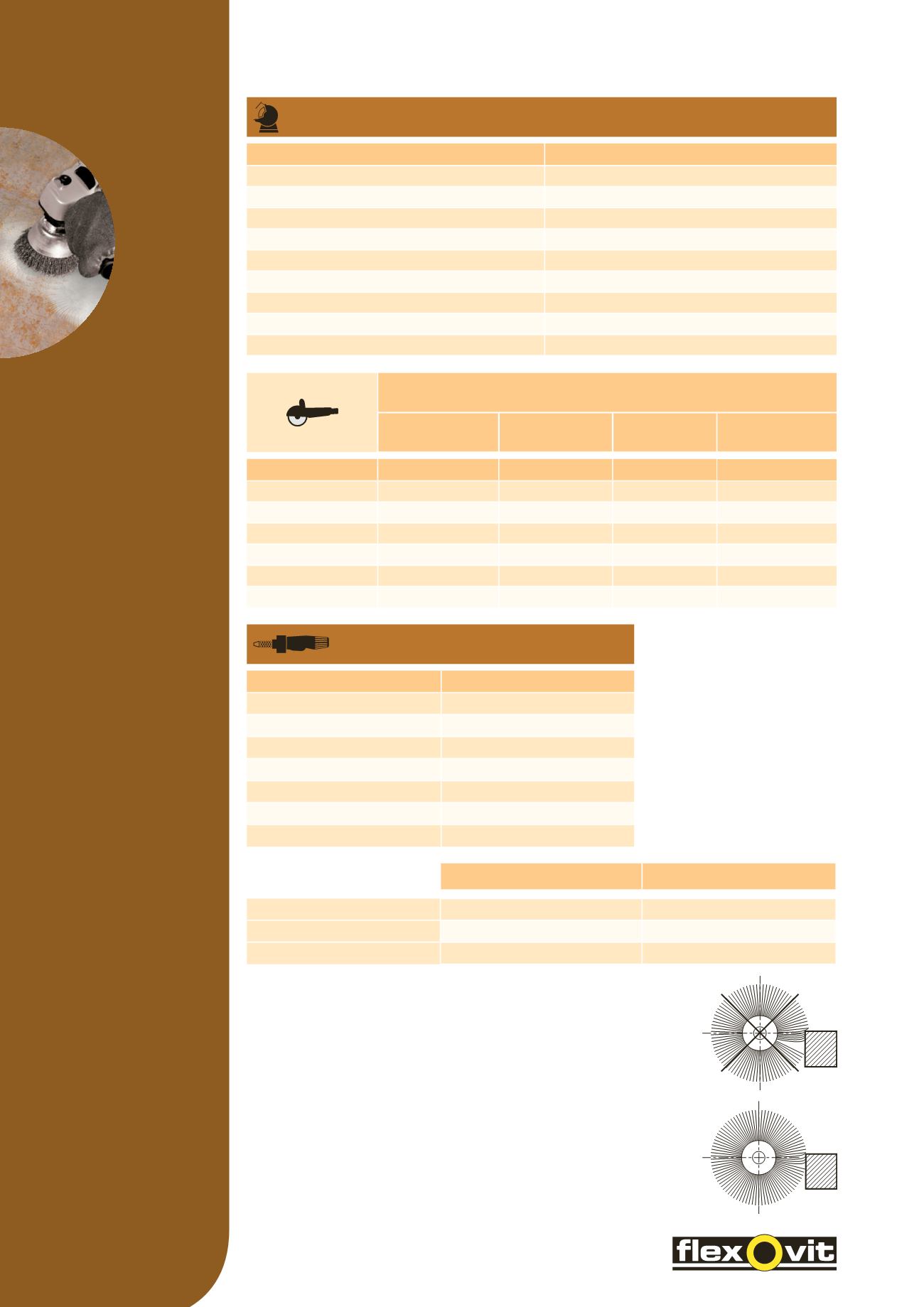

CARBIDE BURRS
AND STEEL
BRUSHES
286
TECHNICAL INFORMATION
BORSTEL TYPE
Max Peripheral speed
of the machine
CUP BRUSHES BEVEL BRUSHES
TWIST KNOT
WHEEL BRUSHES
Diameter
RPM
Diameter
Diameter
Diameter
100
11000
60/65/75
100
100
115
11000
60/65/75
100/115
115
125
10000
60/65/75
115
125
150
9300
75
-
-
180
8500
80/100
-
150/180
230
6500
125/150
-
200
MAXIMUM PERIPHERAL SPEED WHEEL BRUSHES
Diameter (mm)
Max RPM
80
10000
100
8000
125
6000
150
6000
180
6000
200
4500
250
3600
250 - 1 row
3500
300
3000
BRUSHING PRESSURE
• The tips of a wire brush do the work. Operate the brush with the lightest
pressure so only the tips of the wire come in contact with the work.
• If heavy pressure is used, wires will be over stressed, resulting
in a wiping action, and if this is continued, the life of the brush will be
shortened due to wire fatigue.
• Apply the work to the face of the brush ensuring as much of the brush
face as possible is in full contact. Applying the work to the side or edge of
the brushing tool will result in wire breakage and shortened brush life.
• Reversing the wheel brush rotation periodically will tend
to increase the life of the brush. This results in the sharpening
of the wire tips or ends, ensuring faster cutting action.
Crimped wire
Twist Knotted
STEEL
30m/s
35-40m/s
NON FERROUS
18-20m/s
PLASTIC
15m/s
The maximum RPM ratings are
safety ratings not recommended
operating speeds. The optimum
operating speed is determined
by the application and in most
cases lower operating speeds will
prove more efficient and achieve
the best result. As a general guide
we recommend the following
peripheral speeds when working
on the materials listed with:
MAXIMUM PERIPHERAL SPEED
SHAFT MOUNTED WIRE BRUSHES
Diameter (mm)
Max RPM
20
20000
30
20000
40
18000
50
15000
60
15000
70
15000
80
12000


















